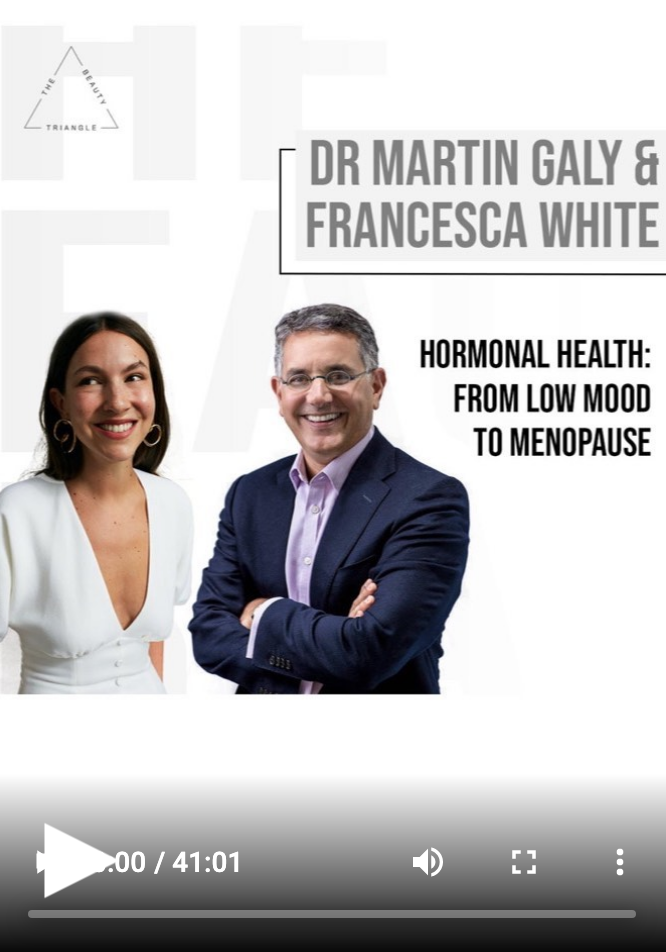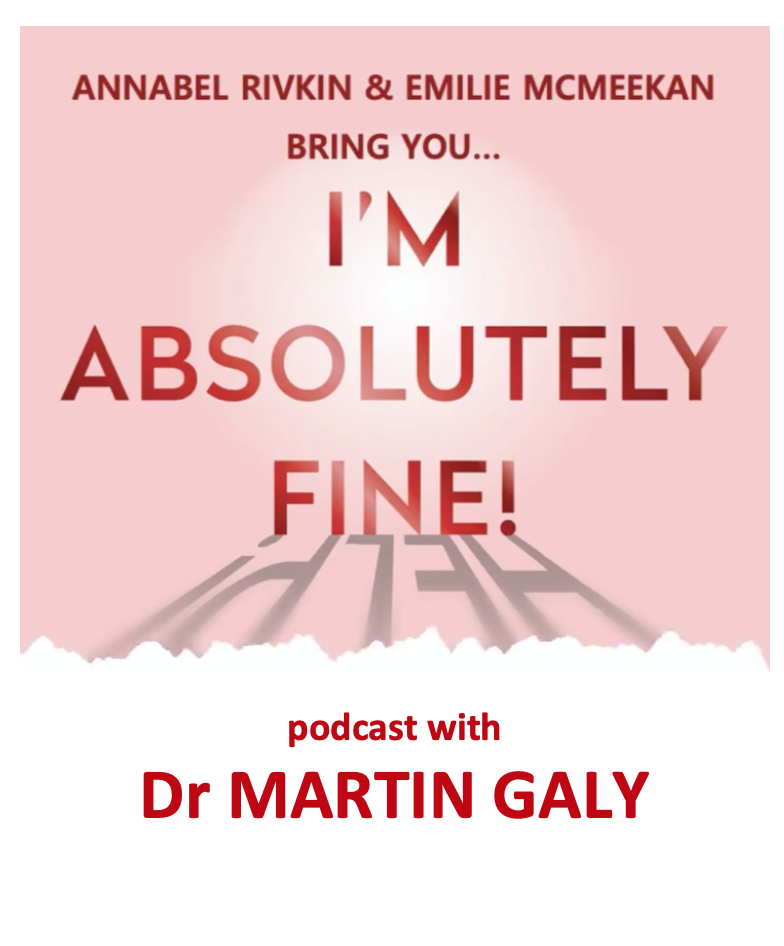Age related Hypogonadism
Testosterone, traditionally believed to be important only for male reproduction and sexuality, is now recognized as having wide-ranging health benefits.[1]
In addition to giving rise to male sexual characteristics, such as facial hair, muscularity, sexual function, and male the psyche, testosterone is also essential for maintaining a healthy body composition, bone mass as well as a positive mood and vigor.[2-5]
Accumulating evidence shows that testosterone is critical for metabolic and vascular health.[6-8]. The metabolic effects of testosterone explain why testosterone deficiency contributes to the development of obesity, metabolic syndrome, and type 2 diabetes mellitus (T2DM).[9,10-14]
Numerous studies have also shown that testosterone is a vasoactive hormone, with predominantly vasodilatory actions, that has beneficial effects on several cardiovascular risk factors, including lipids, endothelial dysfunction, and inflammation, which are key mediators of atherosclerosis.[15,16
Due to the multiple effects of testosterone on many organ systems, the health consequences of low testosterone or age related hypogonadism can be wide-ranging.
Hence, symptomatic hypogonadism merits treatment, and at 23MD we measure and waiting testosterone both for men and women when clinica

lly indicated by blood testing and symptoms.
Several studies have shown that low testosterone levels are associated with increased mortality,[17-38] and there is increasing evidence that TRT may reduce cardio-vascular-related and all-cause mortality.[39] Two notable prospective studies showed that TRT reduces mortality by half in men with and without diabetes mellitus.[40]
IN summary, the importance of low-T in men’s health is now firmly established; and, if left untreated, the condition has many detrimental health effects.
It is therefore very important that men with suspected low testosterone undergo diagnostic evaluation and, if a diagnosis is confirmed, are treated and monitored.
The benefits of TRT for men with hypogonadism are well established and have been shown to outweigh the risks for the majority of patients, in particular those who are obese or have type 2 diabetes.
In spite of suggestions that TRT is associated with an increased risk for prostate cancer and CV disease, evidence from trial data does not support this.
Therefore, patients without contraindications should be offered TRT
A variety of formulations are available that have been shown to improve quality of life and reduce mortality among men with hypogonadism.
Please contact us here to make an appointment for your assessment.
References
-
Saad F. The emancipation of testosterone from niche hormone to multi-system player. Asian J Androl. 2015;17:58-60. Abstract
-
Isidori AM, Giannetta E, Greco EA, Gianfrilli D, Bonifacio V, Isidori A, et al. Effects of testosterone on body composition, bone metabolism and serum lipid profile in middle-aged men: a meta-analysis. Clin Endocrinol (Oxf). 2005;63:280-293. Abstract
-
Wang C, Swerdloff RS, Iranmanesh A, et al. Transdermal testosterone gel improves sexual function, mood, muscle strength, and body composition parameters in hypogonadal men. J Clin Endocrinol Metab. 2000;85:2839-2853. Abstract
-
Wang C, Cunningham G, Dobs A, et al. Long-term testosterone gel (AndroGel) treatment maintains beneficial effects on sexual function and mood, lean and fat mass, and bone mineral density in hypogonadal men. J Clin Endocrinol Metab. 2004;89:2085-2098. Abstract
-
McHenry J, Carrier N, Hull E, Kabbaj M. Sex differences in anxiety and depression: role of testosterone. Front Neuroendocrinol. 2014;35:42-57. Abstract
-
Kelly DM, Jones TH. Testosterone: a vascular hormone in health and disease. J Endocrinol. 2013;217:R47- R71. Abstract
-
Kelly DM, Jones TH. Testosterone: a metabolic hormone in health and disease. J Endocrinol. 2013;217:R25- R45. Abstract
-
Saad F, Gooren LJ. The role of testosterone in the etiology and treatment of obesity, the metabolic syndrome, and diabetes mellitus type 2. J Obes. 2011;2011.
-
Kelly DM, Jones TH. Testosterone: a metabolic hormone in health and disease. J Endocrinol.
-
Saad F. Androgen therapy in men with testosterone deficiency: can testosterone reduce the risk of cardiovascular disease? Diabetes Metab Res Rev. 2012;28 Suppl 2:52-59. Abstract
-
Saad F, Gooren L. The role of testosterone in the metabolic syndrome: a review. J Steroid Biochem Mol Biol. 2009;114:40-43. Abstract
-
Traish AM, Guay A, Feeley R, Saad F. The dark side of testosterone deficiency: I. Metabolic syndrome and erectile dysfunction. J Androl. 2009;30:10-22. Abstract
-
Traish AM, Saad F, Guay A. The dark side of testosterone deficiency: II. Type 2 diabetes and insulin resistance. J Androl. 2009;30:23-32. Abstract
-
Traish AM, Saad F, Feeley RJ, Guay A. The dark side of testosterone deficiency: III. Cardiovascular disease. J Androl. 2009;30:477-494. Abstract
-
Kelly DM, Jones TH. Testosterone: a vascular hormone in health and disease. J Endocrinol. 2
-
Traish AM. Adverse health effects of testosterone deficiency (TD) in men. Steroids. 2014;88:106
-
Haring R, Teng Z, Xanthakis V, et al. Association of sex steroids, gonadotrophins, and their trajectories with clinical cardiovascular disease and all-cause mortality in elderly men from the Framingham Heart Study. Clin Endocrinol (Oxf). 2013;78:629-634. Abstract
-
Hyde Z, Norman PE, Flicker L, et al. Low free testosterone predicts mortality from cardiovascular disease but not other causes: the Health in Men Study. J Clin Endocrinol Metab. 2012;97:179-189. Abstract
-
Muraleedharan V, Marsh H, Kapoor D, Channer KS, Jones TH. Testosterone deficiency is associated with increased risk of mortality and testosterone replacement improves survival in men with type 2 diabetes. Eur J 2013;169:725-733. Abstract
-
Pye SR, Huhtaniemi IT, Finn JD, et al. Late-onset hypogonadism and mortality in aging men. J Clin Endocrinol 2014;99:1357-1366. Abstract
-
Carrero JJ, Qureshi AR, Nakashima A, et al. Prevalence and clinical implications of testosterone deficiency in men with end-stage renal disease. Nephrol Dial Transplant. 2011;26:184-190. Abstract
-
Haring R, Nauck M, Volzke H, et al. Low serum testosterone is associated with increased mortality in men with stage 3 or greater nephropathy. Am J Nephrol. 2011;33:209-217. Abstract
-
Haring R, Volzke H, Steveling A, et al. Low serum testosterone levels are associated with increased risk of mortality in a population-based cohort of men aged 20-79. Eur Heart J. 2010;31:1494-1501. Abstract
-
Kyriazis J, Tzanakis I, Stylianou K, et al. Low serum testosterone, arterial stiffness and mortality in male haemodialysis patients. Nephrol Dial Transplant. 2011;26:2971-2977. Abstract
-
Lerchbaum E, Pilz S, Boehm BO, Grammer TB, Obermayer-Pietsch B, Marz W. Combination of low free testosterone and low vitamin D predicts mortality in older men referred for coronary angiography. Clin Endocrinol (Oxf). 2012;77:475-483. Abstract
-
Malkin CJ, Pugh PJ, Morris PD, Asif S, Jones TH, Channer KS. Low serum testosterone and increased mortality in men with coronary heart disease. Heart. 2010;96:1821-1825. Abstract
-
Carrero JJ, Qureshi AR, Parini P, et al. Low serum testosterone increases mortality risk among male dialysis patients. J Am Soc Nephrol. 2009;20:613-620. Abstract
-
Corona G, Monami M, Boddi V, et al. Low testosterone is associated with an increased risk of MACE lethality in subjects with erectile dysfunction. J Sex Med. 2010;7:1557-1564. Abstract
-
Menke A, Guallar E, Rohrmann S, et al. Sex steroid hormone concentrations and risk of death in US men. Am J Epidemiol. 2010;171:583-592. Abstract
-
Militaru C, Donoiu I, Dracea O, Ionescu DD. Serum testosterone and short-term mortality in men with acute myocardial infarction. Cardiol J. 2010;17:249-253. Abstract
-
Ponikowska B, Jankowska EA, Maj J, et al. Gonadal and adrenal androgen deficiencies as independent predictors of increased cardiovascular mortality in men with type II diabetes mellitus and stable coronary artery disease. Int J Cardiol. 2010;143:343-348. Abstract
-
Tivesten A, Vandenput L, Labrie F, et al. Low serum testosterone and estradiol predict mortality in elderly men. J Clin Endocrinol Metab. 2009;94:2482-2488. Abstract
-
Vikan T, Schirmer H, Njolstad I, Svartberg J. Endogenous sex hormones and the prospective association with cardiovascular disease and mortality in men: the Tromso Study. Eur J Endocrinol. 2009;161:435-442. Abstract
-
Araujo AB, Kupelian V, Page ST, Handelsman DJ, Bremner WJ, McKinlay JB. Sex steroids and all-cause and cause-specific mortality in men. Arch Intern Med. 2007;167:1252-1260. Abstract
-
Khaw KT, Dowsett M, Folkerd E, et al. Endogenous testosterone and mortality due to all causes, cardiovascular disease, and cancer in men: European prospective investigation into cancer in Norfolk (EPIC-Norfolk) Prospective Population Study. Circulation. 2007;116:2694-2701. Abstract
-
Laughlin GA, Barrett-Connor E, Bergstrom J. Low serum testosterone and mortality in older men. J Clin Endocrinol Metab. 2008;93:68-75. Abstract
-
Lehtonen A, Huupponen R, Tuomilehto J, et al. Serum testosterone but not leptin predicts mortality in elderly men. Age Ageing. 2008;37:461-464. Abstract
-
Shores MM, Matsumoto AM, Sloan KL, Kivlahan DR. Low serum testosterone and mortality in male veterans. Arch Intern Med. 2006;166:1660-1665. Abstract
-
Hackett GI. Testosterone replacement therapy and mortality in older men. Drug Saf. 2015 Oct 19
-
Shores MM, Smith NL, Forsberg CW, Anawalt BD, Matsumoto AM. Testosterone treatment and mortality in men with low testosterone levels. J Clin Endocrinol Metab. 2012;97:2050-2058. Abstract







































































